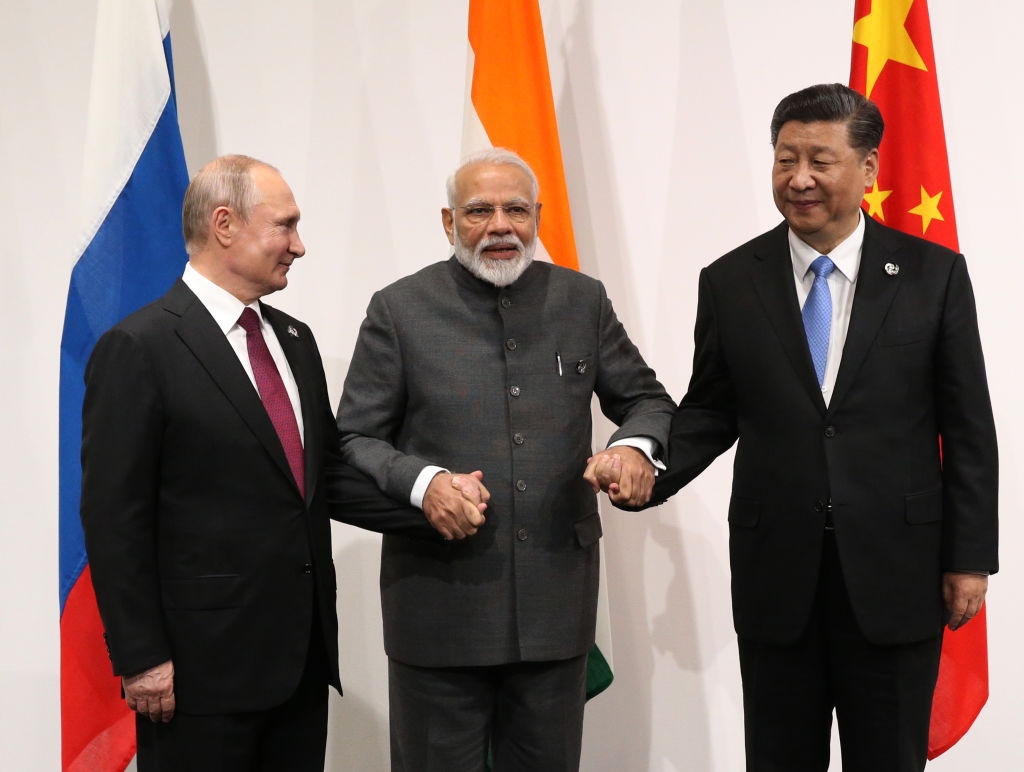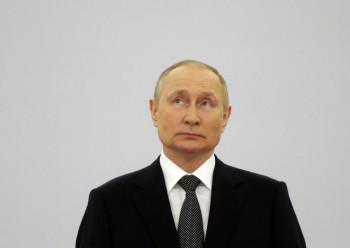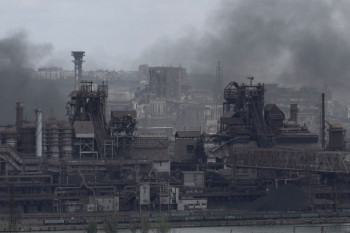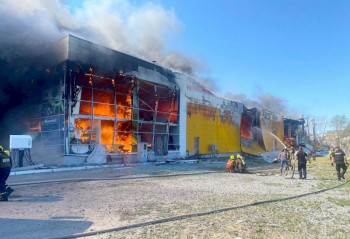Russia is officially the world's most sanctioned country, but the Kremlin doesn't seem to care.
Since Moscow launched a full-scale invasion of Ukraine in February, trade bans from the European Union and the United States have seen imports grind to a halt. Meanwhile, hundreds of international companies have fled the Russian market, spurred on by outraged customers and risk-averse shareholders.
Russia's economy, however, remains in what seems to be a surprisingly robust shape. Its officials claim the country's GDP had contracted by just 4% between April and June 2022.
The drop – which took Russia's reported GDP to $574 billion – was much less than most economists expected. Later the Kremlin even upped their economic forecast, telling reporters that they expected GDP to grow again by 2024.
But while the figures have quickly racked up headlines, experts studying Russia's apparent economic miracle stress that these early reports may not be genuine.
Russia conceals its economic data
Over the past six months, the Kremlin has banned the release of statistics that could give outsiders a glimpse into the actual state of the Russian economy. It includes all foreign trade data, import and export figures, monthly output stats for oil and gas, and even airline passenger numbers.
Instead, select economic data is released via Russia's statistical agency Rosstat, an organization directly under the control of Russia's Finance Ministry.
"Russia has suspended and concealed this entire set of data. It's a fraud," says Jeffrey Sonnenfeld, a senior associate dean at the Yale School of Management. "But just because journalists and researchers can't visit Russia, it doesn't mean the story (of Russia's economic collapse) isn't there."
Sonnenfeld believes that inexperienced reporters, particularly in the West, have been too quickly taken in by the Kremlin's sleight of hand, leading to a spate of too-generous articles on Russia's economic resilience.
"Russia has no self-sufficiency," he says. "There's been a 50% decline of imports from China. Unemployment is soaring; factories are shuttered. The companies which have left Russia have revenue exceeding 40% of Russia's GDP. The hit to GDP (now they've left) wouldn't be 40%, but it is certainly more than 4%."
Yet Moscow's economic resilience can't just be put down to statistical creativity – other factors have also softened the blow of sanctions on Russia's newly wartime economy.
Of the hundreds of companies that quit the Russian market, many flagship firms such as McDonald's and Starbucks have sold their franchises to Russians rather than leaving outright. Those transitions have protected thousands of employees from the shock of redundancy and commercial landlords from a substantial loss in earnings.
Some other international businesses stopped short of abandoning the Russian market, instead promising to "suspend" unspecified "future investments."

Russian President Vladimir Putin (L), Indian Prime Minister Narendra Modi (C), and Chinese President Xi Jinping pose for a group photo prior to their trilateral meeting at the G20 Osaka Summit on June 28, 2019, in Osaka, Japan. (Photo by Mikhail Svetlov/Getty Images)
Energy exports keep Russia's GDP afloat
Statistical creativity and the fact that some international companies took a softer stance towards Russia, however, are dwarfed by the punch of Moscow's energy exports, which have been helping Russia's economy as never before.
However, as both gas and oil prices slump in the wake of Europe's energy resilience and a desire to lower Russian imports, Moscow's budget surplus is set to evaporate in the coming months.
According to the World Bank, trade made up 46% of Russia's GDP in 2020. Oil and gas accounted for more than two-fifths of these exports. In 2021, as the energy prices went up, oil and gas revenues secured 45% of the country's budget.
That, added to lower import volumes, brought Russia's trade surplus north of $20 billion over the first six months of 2022. It was just 10 billion over the entire 2019.
Most of Russia's energy exports are currently sent to India and China, where buyers have leveraged Moscow's geopolitical turmoil for significant discounts on oil and gas.
The Kremlin was happy to provide these discounts – not least because the invasion of Ukraine and the global uncertainty has led to a sharp increase in energy prices in the first half of 2022.
Europe's gas price increased threefold since February, reaching $336 megawatt-hour in late August, while oil prices peaked at $120 a barrel.
Russia's Economic Ministry believed that the rising prices would see Russia's energy export earnings rise to $337.5 billion in 2022, a 38% increase from the year before.
Europe was also paying more early on. Despite gas exports to Europe falling from 205.6 billion cubic meters to 170.4, according to the Gazprom forecasts – Russia was gaining more money than before.
"Russia and the Soviet Union have been surviving mainly off oil and gas sales since the early 1970s," says Richard Connolly, an expert on the Russian economy at the Royal United Services Institute in Britain.
Yet, now the prices are melting, and so is Russia's war chest. Europe's gas prices are now polling below $200 for a megawatt-hour, while oil prices fell below $90 a barrel for the first time since February.
Slow downturn
Russia has escaped an immediate economic downturn but can't hold off its looming financial woes forever.
Global markets are sliding into recession, a downturn that will only quicken if Russia continues to disrupt gas supplies to Western Europe. That means energy prices are also likely to face a further decrease, biting into the Kremlin's much-needed cash flow.
It is this slow downturn that some Western economists hope will ultimately cause discontent. They believe that Russia's long-term financial outlook will eventually erode in a way that cannot be ignored by the masses, as Moscow becomes increasingly isolated, unable to spend the money it has gathered from energy sales either on imports or the technical know-how.
"If we look at authoritarian regimes, it's rare that an economic implosion in itself will lead to the end," says Steven Tian, a research director at the Yale Chief Executive Leadership Institute. "It lays the groundwork and ferments discontent until a catalyst ultimately sets the place ablaze."
"It will take years to take down the Russian oil industry," says Tian. "But we're already seeing the first signs playing out, and Russia is in a much worse position than it was before."













